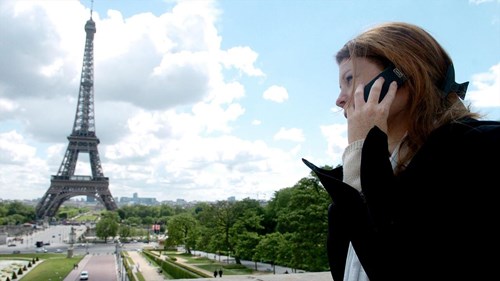Europe agrees to scrap roaming charges while paving way for 'internet fast lane'
Roaming charges throughout the EU are set to be scrapped in June 2017, after the European Parliament and EU Council on Tuesday backed the European Commission's proposal to bring them to an end.
The three institutions also agreed to enshrine net neutrality rules that prevent unfair blocking or connection speed throttling, and paid prioritisation of Web traffic.
Telcos will still be permitted to provide specialised connectivity services for the purpose of delivering bandwidth-hungry services like Internet TV, but not at the expense of the public Internet.

Roaming fees will cease to exist from 15 June 2017(Image source: Irishexaminer.com)
To prevent abuse, consumers will not be permitted to buy a SIM card from a country with lower prices than their domestic market and use it at home. This so-called fair use safeguard will also stop customers from moving abroad and using a domestic subscription from their home country.
The measures will be implemented under the EU's 2016 telco reform package – which also includes efforts to harmonise spectrum across the bloc – and forms part of the EU's far-reaching digital single market (DSM) strategy.
"Europeans have been calling and waiting for the end of roaming charges as well as for net neutrality rules. They have been heard," said Andrus Ansip, vice president for the digital single market, in a statement.
"I welcome today's crucial agreement to finally end roaming charges and establish pragmatic net neutrality rules throughout the EU," added Günther Oettinger, commissioner for the digital economy and society. "Both are essential for consumers and businesses in today's European digital economy and society. We will build on these important foundations in our forthcoming review of the EU's telecoms legislation."
Lobby group ETNO said it is vital that Tuesday's regulations do not hamper investment or innovation, or distort markets.
"We share the pressing need to swiftly address today's major challenge: ensuring superfast broadband deployment through a sustained level of network investment," said ETNO chairman Steven Tas.
Lowering roaming fees has been on the Commission's agenda for many years.
Ansip and Oettinger's predecessor Neelie Kroes proposed to end roaming charges altogether in September 2013. Kroes' work was built on that of her predecessor Viviane.
Reding, who capped roaming charges with the aim of encouraging telcos to launch competitive roaming offers.
Since 2007, the cost of roaming calls, SMS and data has fallen by 80%.
Tuesday's agreement will see roaming charge caps reduced by a further 75% from April 2016, meaning that operators will only be permitted to charge a small additional amount on top of their domestic prices. They will then be phased out altogether in June 2017.
Total Telecom




